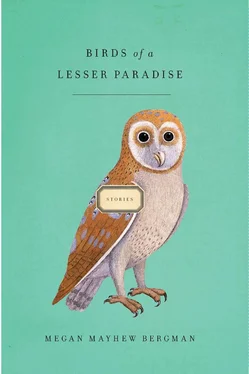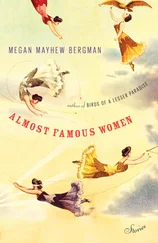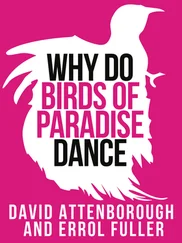Make peace with the food chain, Mom had told me out West one night when we were looking at the neighbor’s chicken coop. Do it now, before it breaks your heart.
Last week I’d seen a hawk fly onto a branch, wings massive and gray, and snatch a squirrel from a maple. I’d watched, helpless, as the yellow-eyed bird sank his claws into the writhing gray body, brought it to the frozen ground. The squirrel had made a sound that stayed in my ears for days. The bird had concentrated on his kill, eyes wide as if he were straining to get the job done. I yelled and charged him, but he would not be moved. He flew when satisfied, carried the squirrel’s limp body across the field and into the trees.
The best predators, I realized, had no empathy.
People finished singing and Millie put down her bow. The rest of her trio followed suit; the pianist folded his hands into his lap.
Millie, someone said. Show us your scars.
Millie stood up and handed the pianist her violin. She made a motion for him to scoot to the edge of the bench. One hand hiking her skirt, she used the other to roll down her hose.
There, on Millie’s pale leg, were three deep scratch marks, raised, the color of dark wine.
I felt Mom stiffen beside me. She had her own scars. Bite marks on her calf. Her right breast now folded into itself, the nipple gone, a purple ridge across her chest.
I can still feel them, Millie said to the room.
Suddenly Erik burst through the back door, Fauna in his arms, blood on his leather vest.
They took her down, he said, chest heaving. But I beat them off with a branch. The white coyote was there. It’s a bitch, too. A bitch coyote, with some wild dog in it. Pups to feed and mean as hell.
Fauna’s neck was bleeding. Erik wrapped it tightly in an old T-shirt and helped Mr. Simons take her out to the car.
I apologize, Mr. Simons said to the room as he was leaving, but the party’s over. Linger if you need to—
Call the vet at home, Erik said. Long driveway off of Route 30. He’ll meet you at the barn when it’s a real emergency.
After Mr. Simons drove off, people began to say their good-byes — kissing each other on the cheek warmly, shaking hands. I took another long look at Millie. Every year I thought I’d never see her again.
Mom and I walked slowly to the truck. On the ride home I cracked the windows to feel the cold sleet on my face.
What are you thinking about? Mom said.
The right answer would have been this: blood. How all my fear, all the looking over my shoulder added up to nothing — what I really wanted was a fight. To come out the other side, wiser.
At the side of the road, I could see our headlights pool in the eyes of a smattering of deer in the apple trees. A herd of five, they rooted in the snow for fallen apples.
The coyotes are coming for you, I said.
Don’t be dramatic, Mom said. I’ve told you about being dramatic.
Mom exhaled. Her breath hit the window.
I thought: This is the last time her breath will hit the window.
The night Mom found out her cancer had returned, I’d slept by the doorway to her bedroom, just in case she needed me. I wanted to be close to her.

The night of Mr. Simons’s party, Mom went to bed in her clothes.
I’m tired, she said. Can you check to make sure the horses’ water isn’t frozen?
I went out to the pasture and kicked snow from a crate of crab apples. There were ice crystals like webs on the horses’ hocks, trails of hoofprints in the snow. We’d come home too late to lock the hens in and they’d gone up into the trees. A few clucked and cooed as I walked past.
Mom had always taught me that a horse would sense danger first. If your horse won’t go, she’d say, don’t go. Snakes, bears, coyotes — the horse’s instincts about them are better than yours.
So, I asked the horses. What’s in the woods tonight?
Half asleep, they stomped and stared and prodded my clenched fists for food. Their breath hung in the air like small clouds.
It’s all about apples with you, I said.
That night, before falling asleep, I thought of the famed fourteen-year-old Texas boy who’d killed hundreds of wild hogs by leaping onto their backs and slitting their throats with a butcher knife. My grandfather had told me that one way to hunt was to make a sound like a dying cat and then lie in wait.
I mean really wail, he’d said. Cry like a baby if you have to. Sound like something worth eating.
At two a.m., the rooster crowed. Roosters are dumb as shit. They’re so brave they’re stupid, or they’re so stupid they’re brave. I’m not sure which. Regardless, they’ll fight anything.
I couldn’t fall back to sleep, so I walked down the hallway to Mom’s room. I pushed open her door and watched her. Her sleep was deep and fitful and God knows how many painkillers she had to take to shut up all of the worries and hurt.
Years ago, Mom had studied to be a dental hygienist. She’d always liked teeth. She swore to me she’d cut my baby teeth by pressing the back of a silver spoon against my gums. She would clean my teeth herself, using her old equipment, which she doused in mouthwash. Sometimes, when I was talking, she’d slip a finger into my mouth and pull down my lip to check for tartar. She’d done it just the other day and I’d thought: This may be the last time Mom checks my teeth. Her finger felt rough on my gums. I could hear her jagged breath, see the yellow in the whites of her eyes.
The dogs were all sleeping in her room now, as if they knew something. I slipped down the hall to the front door, careful not to wake them. I pulled on Mom’s coveralls and the sweatshirt that she kept on hooks in the garage. I cuffed the legs so they wouldn’t get soaked when I went outside.
It was snowing just a little and the air was cold enough to freeze the inside of my nose. The horses were still and the rooster was quiet and the old silo in our backyard shone underneath the moon. The silo was full of bats and busted rakes and looked like a grounded spaceship. The moon was a waxing gibbous, almost full, bright enough to get around in.
The snow wasn’t deep. The ground crunched as I walked through our back fields. I kept walking. Whatever made me love running made me love moving, distance, an open field. My fingers were cold; I should have worn gloves. I reached the old orchard and put one leg over the barbed-wire fence. The apples weren’t good enough for whoever owned them, so they rotted, fed bears.
Hundreds of trees bore fruit in the fall. Now the apples were black and the trees without leaves. There were cattle out here — heifers and calves. I could hear them at night, especially when they were in heat. Soon they’d take the calves from the mothers and sell them for meat. Dark hulking shapes; I could feel the warmth of their bodies and smell their fermented breath as I moved past.
I knew that if I followed the ATV path through the orchard, I’d come to the back of Erik’s fields. The moon caught the ice on the branches. I concentrated on the sound of my boots in the frozen snow.
I came to a barbed-wire fence Erik had thrown up over one of the old stone walls. My grandfather told me once that at the turn of the century Vermont had been near bald, all the trees stripped to make pasture for sheep and dairy cows.
Nearby, I heard branches breaking. Probably a spooked deer, I told myself.
I wondered if Erik was up at this hour, but I knew a high school girl had no business knocking on a grown man’s window in the middle of the night. Still, I imagined slipping into his bed, moonlight streaming through the window, the surprised look on his face, the tender way he’d remove my clothes and drape himself over me.
Читать дальше













